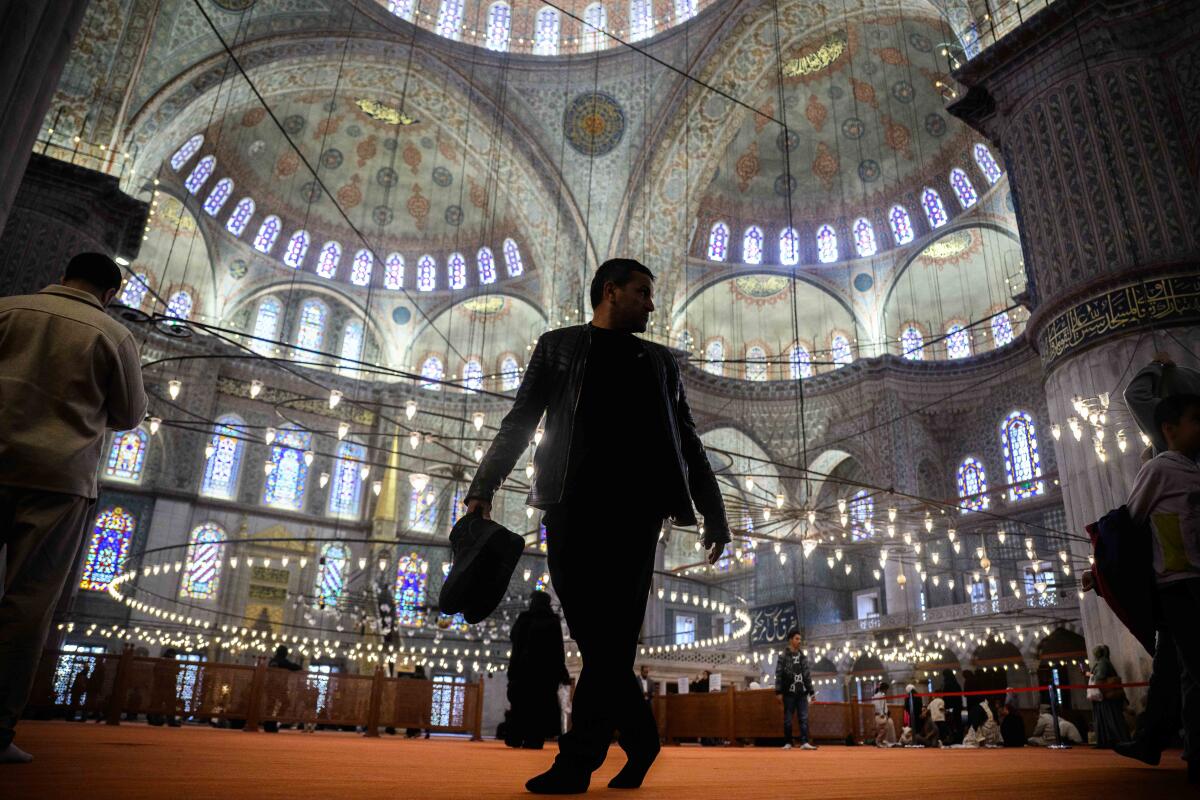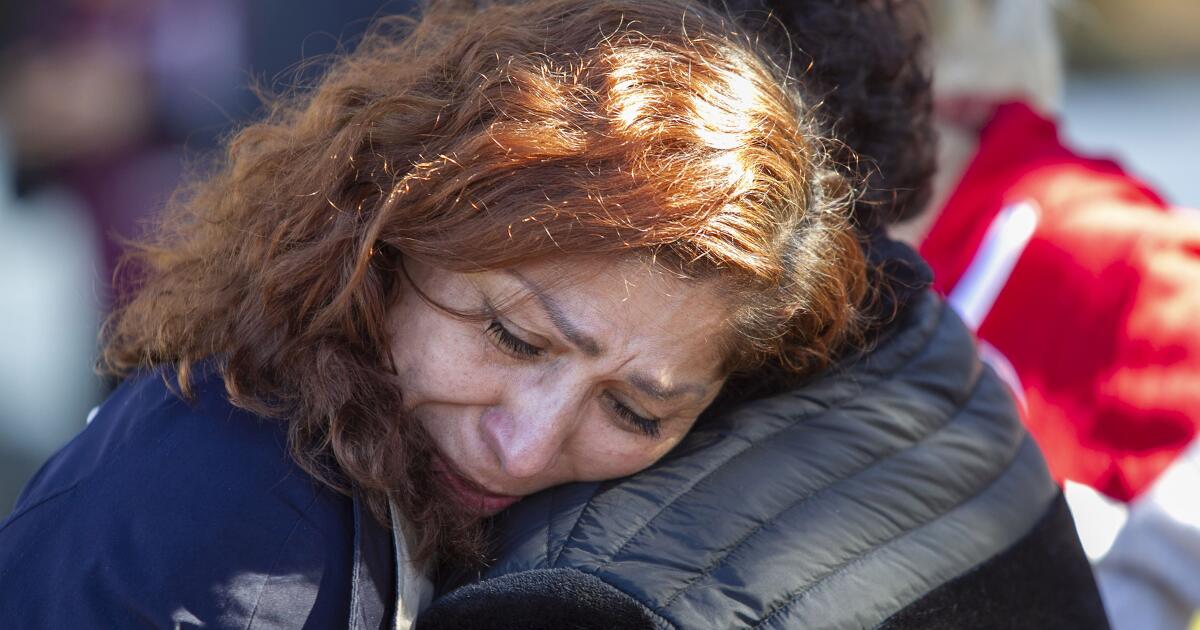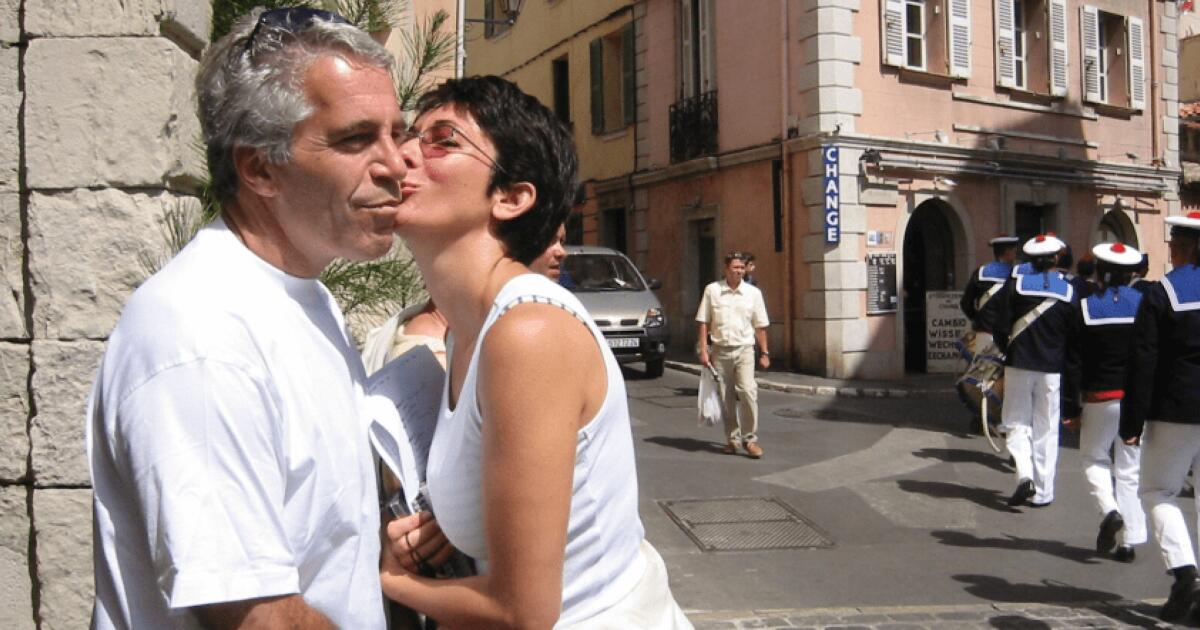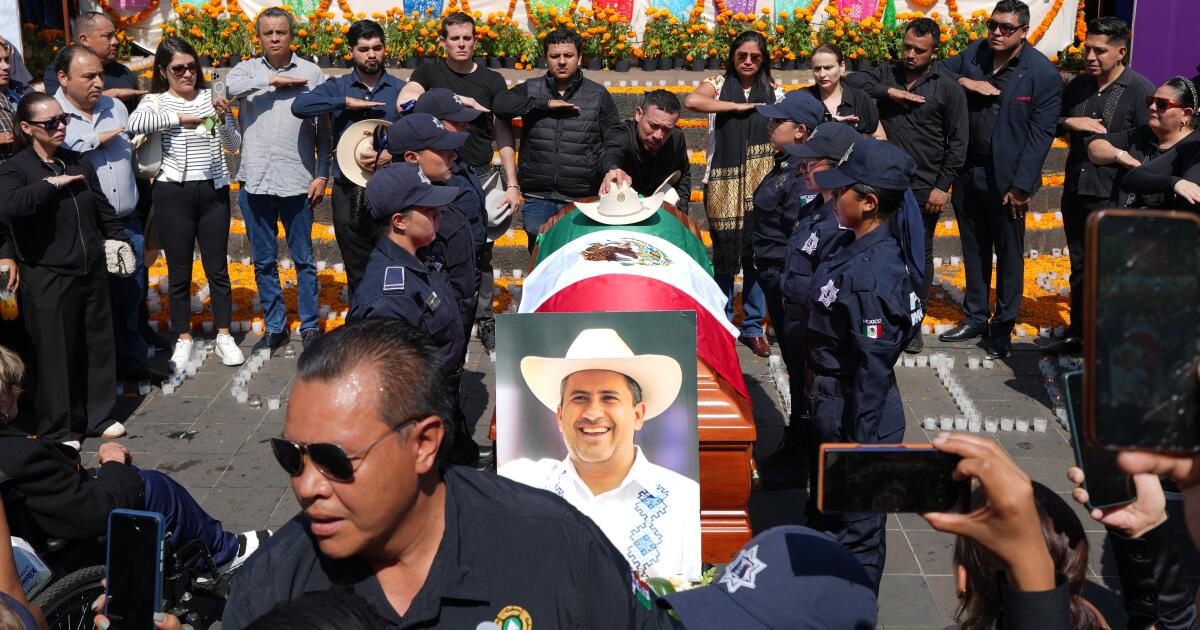BEIRUT — When Pope Leo XIV visits the Middle East this week, he comes to a conflict-weary region struggling to find peace even as the specter of war stalks it once again.
In his first international trip since assuming the papacy in May, the Chicago-born pope will travel Thursday to Turkey, where he will celebrate the 1,700th anniversary of the Council of Nicaea, where the Nicene Creed — a foundational declaration of Christian belief and unity — was written in AD 325.
But perhaps the real test of Leo’s international debut lies in Lebanon. His coming fulfills a promise to visit the country made by his boldly charismatic predecessor Pope Francis, who raised the papacy’s international profile with dozens visits abroad and a propensity for frankness in his commentary that endeared him to the faithful, especially in the Middle East.
But Christians — estimated to be about 30% of Lebanon’s population — are not the only ones looking forward to Leo’s arrival.

A view of the Sultan Ahmed Mosque in Istanbul, which Pope Leo XIV will see during his visit to Turkey, which begins Nov. 27, 2025.
(Arif Hudaverdi Yaman / Anadolu / Getty Images)
Many here hope his visit will be a portent for peace, bringing attention to this tiny Mediterranean nation as it contends with a Job-like succession of crises: First the economy, which crashed in 2019, tanking the banking system and the currency with it; then the port explosion in 2020; and the war between the Lebanese Shiite militant group Hezbollah and Israel, which flared in 2023 before intensifying late last year and left thousands dead and wide swaths of Lebanon’s south and east pulverized.
Despite a ceasefire brokered last November, Israel has launched near-daily attacks on its northern neighbor, justifying its strikes as a bid to stop Hezbollah from reconstituting itself, even as the United Nations tallied more than 10,000 air and ground violations in Lebanese territory and 127 civilians killed in the year since the ceasefire took effect.
Israel’s attacks have also paralyzed reconstruction efforts, meaning most residents of Lebanese border towns — whether dominated by Christians, Muslims or Druze — have been unable to piece back their prewar lives. The U.N.’s human rights office says around 64,000 Lebanese remain displaced.

The Israeli army launched more than 10 airstrikes on the town of al-Musaylih in southern Lebanon, causing extensive damage, on Oct. 11.
(Houssam Shbaro/Anadolu via Getty Images)
Safety concerns for the pope have been paramount in people’s minds for months. In October, in what appeared to be a hot mic moment, Jordan’s Queen Rania asked the pope during a photo-op at the Vatican whether it was safe to go to Lebanon. “Well, we’re going,” Leo gruffly replied.
Alarms were raised again over the weekend when Israel bombed Beirut’s southern suburbs, barely two miles away from where the pope would be landing on Sunday. The attack, the first one in months near the capital, killed Hezbollah’s most senior military commander and coincided with a general uptick in Israeli strikes and drone activity in recent weeks — all indicators, observers say, of an impending all-out assault.
Nevertheless, the trip is still on, Lebanese officials say.
For Oumayma Farah, development director of the Order of Malta Lebanon, which aids communities of all religions and nationalities through humanitarian projects, that’s a “sign of courage and resilience to the Lebanese population and Christians in the region as a whole.”
“Whatever happens, the pope will come,” Farah said.
“The Church teaches us to not be afraid, so he’s the first example.”

A woman walks her dog past a billboard in Beirut touting Pope Leo’s upcoming visit to Lebanon.
(Anwar Amro / AFP/Getty Images)
Like most of the countries where Christianity first took hold, wars and economic lethargy — not to mention a relatively easier path to emigration — have dwindled Lebanon’s Christian population over the decades.
Across the Middle East, the number of Christians has gone from 20% of the population to a mere 5%; Lebanon remains the Arab country with the highest proportion, with Christians making up about 30% of the population, according to estimates from various research groups and the U.S. State Department.
The pope’s insistence on coming to Lebanon, Farah said, was “re-centering the importance of this country” and a “wake-up call” for its politicians. After spending three days in Turkey, the pope will arrive in Lebanon on Sunday and depart Tuesday.
In the Lebanese capital, Beirut, and other areas on the pope’s itinerary, signs abound of furious logistical activity and preparations: Police and security personnel have intensified their presence. A two-day holiday was announced to allow participation in public prayer events, even as parishes and schools across the country have been involved in bringing the faithful to attend Mass near the site of the Beirut port blast, which was deemed an accident caused by negligence, and elsewhere.
Meanwhile, roadworks and maintenance, all but abrogated in recent years due to the government’s financial woes, have been in full swing. The joke around town is that people want another papal visit if only so the government finishes repaving all the country’s pothole-stricken streets. A bitter corollary is another joke that the refurbished roads will last only till the pope leaves — because they’ll be destroyed in a new Israeli campaign.

Along with visiting the Sultan Ahmed Mosque in Istanbul, Pope Leo will travel to the Turkish city of Iznik, ancient Nicaea, to mark the 1700th anniversary of the Council of Nicaea.
(Arif Hudaverdi Yaman / Anadolu / Getty Images)
The gallows humor reflects the uncertainty of the moment, with the U.S. and Israel pushing the Lebanese army to fully disarm Hezbollah, even as the group insists it will disarm only in the country’s south.
Lebanon’s government, in turn, says that it cannot persuade Hezbollah to give up its arms so long as Israel keeps occupying Lebanese territory, and that doing so by force would lead to civil war.
The hope is that the pontiff can help break the logjam. But though few expect change to come so quickly, the visit is still important, said a Maronite parish priest, Father Tony Elias, from Rmeish, a village located just across the border from Israel.
“When the pope visits a country that has been in pain for so long, this is truly enough to lift that pain,” Elias said.
Rmeish, which maintained a resolutely neutral stance during the war, is relatively unscathed, an exception in the wasteland that has become Lebanon’s border area after years of Israeli bombardment.
Elias said he would have wanted the pope to visit the south, but he wasn’t disappointed, as he and about 200 others from the village would travel to Beirut and join the pontiff.
“If he can’t come to the south, we can come to him,” Elias said.



